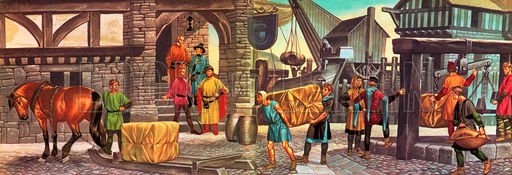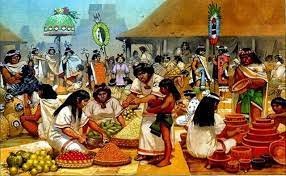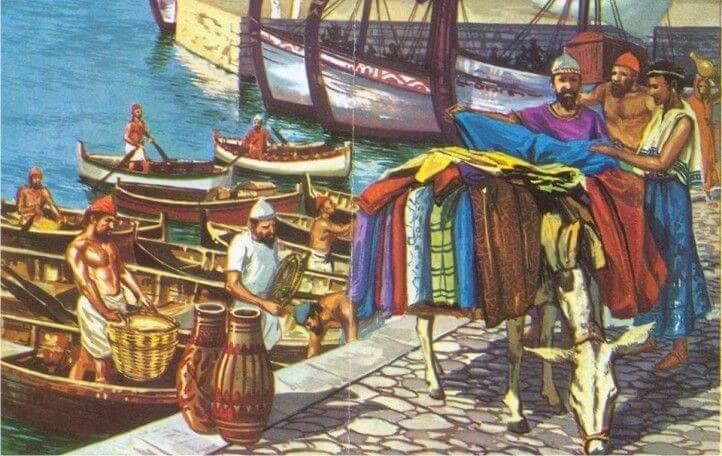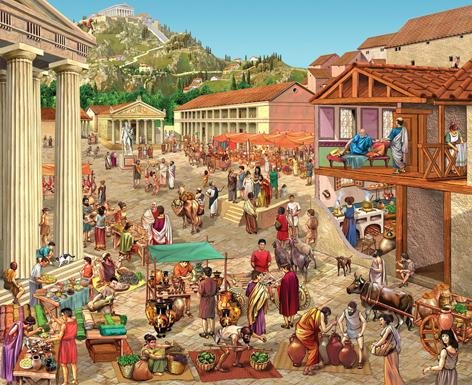
Barter, a system of direct exchange without the use of currency, emerged as a fundamental pillar in ancient societies. From Mesopotamian civilizations to pre-Columbian cultures, barter proved to be an essential component for subsistence and economic development.
Definition of Barter
In its most basic form, barter translates into the direct exchange of goods and services between individuals or communities. In ancient societies, this system arose as a practical response to the need for obtaining essential elements for daily life.
Barter in the Ancient Age

In antiquity, barter prevailed as the quintessential method for acquiring food, tools, and other necessary goods. From the Bronze Age to the era of empires, transactions were grounded in the simple premise of "what you have for what I need."
Mechanisms and Commodities in Primitive Barter
The organization of barter varied across regions and cultures. Some societies employed barter systems based on reciprocity, where exchange was built on trust and community relationships. Tools, food, hides, and other essential resources were exchanged in this primitive marketplace without money.
Challenges and Limitations of Barter in the Past
Although vital, barter faced significant challenges. The lack of a standard unit of value complicated transactions, and the need to find exact matches in needs created obstacles for efficient exchange.
Barter and Economic Development in Ancient Civilizations

Barter not only served a survival function but also drove economic development. Constant exchange fostered the specialization of skills and the diversification of goods, laying the groundwork for more complex societies.
Historical Examples of Significant Barter
Exploring various ancient cultures, from the Sumerians to the Aztecs, reveals historical examples of barter that left an indelible mark on the evolution of these societies. From the exchange of precious metals to the transmission of knowledge, barter acted as a catalyst for progress.
The Decline of Barter and the Emergence of Coins
Over time, the limitations of barter led to the rise of more efficient forms of exchange. The development of coins as a unit of value facilitated transactions and marked the gradual decline of barter in favor of more sophisticated systems.

Final Reflections
Barter in ancient societies was not just a method of exchange but an essential link that shaped the course of history. Although it has evolved into more complex monetary systems, the root of barter persists in the very essence of human economic transactions. In summary, barter in ancient societies not only provided material goods but wove the very fabric of communities, establishing fundamental connections that have endured throughout the millennia.
There is reasonable evidence that this article is machine-generated. Posting such content is considered fraud. Fraud is discouraged by the community and may result in the account being Blacklisted.
Guide: AI-Generated Content = Not Original Content
Link to the previous post
Reposting previous posts or parts of them without significant additional original content/changes is considered fraud and exploitation of the "Hive Reward Pool".
Please refrain from copying and pasting previous posts going forward.
If you believe this comment is in error, please contact us in #appeals in Discord.